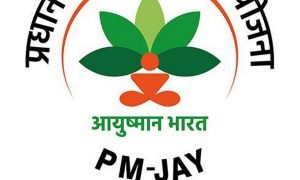Amidst the era of accessible credit and deferred payment plans, it’s increasingly common for people to become overwhelmed by credit card debt. The combination of high interest rates, late charges, and numerous outstanding amounts can rapidly escalate, creating a destructive cycle of financial anxiety and negative credit ratings. Nevertheless, there is a remedy that can help regain financial stability and set the stage for a debt-free future – credit card consolidation.
Read More:- How to set up an NPS account online: A step-by-step guide
As reported by TransUnion CIBIL, the average credit card debt per borrower in India was approximately ₹36,000 in 2021. While this figure may not seem alarming at first glance, the reality is that many individuals struggle with substantially higher credit card debt, often exacerbated by the temptation to swipe that plastic card for every purchase.
In the modern era of effortless borrowing and immediate satisfaction, it’s commonplace for people to become overwhelmed by credit card debt. Swiftly escalating interest rates, penalties for late payments, and juggling multiple balances can easily snowball, resulting in a relentless cycle of financial strain and negative credit ratings. Nonetheless, there exist numerous remedies that can assist in regaining command over personal finances and charting a course toward a debt-free tomorrow.
Read More: Top 7 Large Cap Funds: Check Returns In Last 10 Years Over Monthly SIP Of Rs. 10000
Debt consolidation loans
One of the most efficient methods for consolidating debt is to secure a debt consolidation loan. This process entails obtaining a singular loan to settle numerous outstanding debts, such as credit card balances, personal loans, and other obligations. One major benefit of this method is that it allows you to consolidate all your debts into a single monthly payment with a fixed interest rate, potentially lower than what you’re currently paying. This simplification of your financial obligations can result in significant interest savings.
Balance transfer credit cards
If you’re dealing with multiple credit card balances, you might want to think about moving them to a single credit card with a low or 0% introductory Annual Percentage Rate (APR) through a balance transfer. Many credit card companies offer promotional periods of 12 to 18 months with no interest on balance transfers. This can offer temporary respite from high interest rates while you work on reducing the principal amount. However, it’s important to clear the transferred balance before the promotional period expires to avoid high interest fees.
Read More: Senior citizens can now get up to 9.75% return on fixed deposit of this bank – Check details
Programs for managing debt
Credit counselling agencies offer debt management programs that can assist in consolidating and restructuring unsecured debts, such as credit cards and personal loans. These programs involve the agency negotiating with your creditors to lower interest rates and fees, and you then making a single monthly payment to the agency, which then distributes the funds to your creditors. While these programs can expedite your journey to becoming debt-free, they may have an impact on your credit score and necessitate the closure of enrolled accounts.
Resolving debt through settlement
Debt settlement entails negotiating with creditors to make a lump sum payment that is lower than the total amount owed. This option is usually for individuals who are considerably behind on payments and realistically cannot settle their debts in full.
While debt settlement can provide relief, it can also severely damage your credit score and may result in tax implications on the forgiven debt.
Boost your income and reduce expenses
Although not a debt consolidation method, increasing your earnings through a second job, freelancing, or side hustles, and trimming unnecessary costs can free up more money for debt repayment. Adhering to a tight budget can expedite your journey to becoming debt-free and streamline your financial situation.
Read More: Mutual funds industry adds 81 lakh new investor accounts in April-May FY25
Connect with a financial coach
Engaging with a financial coach or advisor in India can provide personalised guidance tailored to your specific financial situation. A financial coach can help you understand your spending patterns, guide in developing a realistic budget and a customised plan to manage and pay off your debts effectively. They can also provide ongoing support and accountability to help you stay on track towards financial freedom.
Regardless of the debt consolidation approach you opt for, it’s essential to tackle the process with self-discipline and a dedication to transforming your financial behaviours. Experts recommend creating a realistic budget, cutting unnecessary expenses, and avoiding accumulating new debt while paying off your existing obligations.
Read More: How to improve your credit score? Know it from experts
Prema Gurung, a home baker and investor from Delhi NCR, found herself in a precarious financial situation in 2014. She was grappling with a credit card and personal debt of around ₹10 lakh, exacerbated by the difficulty she faced in discussing money matters with her husband, and a lack of savings.
However, her life took a positive turn when she enrolled in a financial education program. Within an impressive span of 20 months, she became debt-free, paying off her entire ₹10 lakh debt. Armed with newfound knowledge, she made informed decisions, purchasing appropriate insurance policies, establishing an emergency fund, and utilising tax-saving strategies.
Over the years, Prema’s financial prowess enabled them to achieve significant milestones, including purchasing land in their hometown and building her daughter’s higher education fund. Even when the COVID-19 pandemic struck, and they both lost their income temporarily, their financial resilience remained unshaken, thanks to Prema’s proactive approach and financial education. Prema’s story serves as a testament to the power of credit card consolidation and financial education, enabling her to break free from debt and embark on a path towards financial stability and growth.
In conclusion, credit card consolidation can be a powerful strategy for individuals struggling with debt. By combining multiple balances into a single, more manageable payment with a lower interest rate, you can simplify your finances, reduce interest charges, and develop a clear plan to become debt-free.
However, it’s essential to approach the process with discipline, address underlying spending habits, and commit to developing a healthy relationship with money. With the right mindset and tools, you can break free from the shackles of debt and pave the way towards financial stability and long-term success.





































